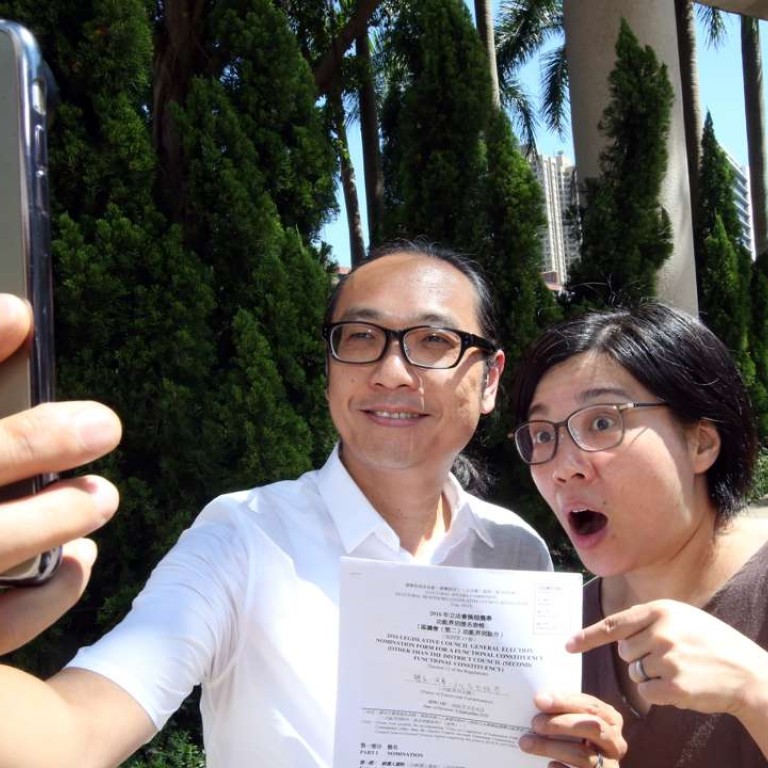
Songwriter Adrian Chow vies for hotly contested functional constituency seat against pro-Beijing incumbent
Adrian Chow is aiming for place in Legislative Council to represent sports, performing arts, culture and publication sector
Competition is expected to be fierce among candidates vying for functional constituency seats in the upcoming Legislative Council elections on September 4. With 12 candidates in 10 functional constituencies being returned unopposed, 43 candidates will run for seats in 18 trade-based constituencies – four more contested functional constituencies than in the 2012 Legco polls. Here, we look at the sports, performing arts, culture and publication sector.
He even picked a difficult battlefield – the functional constituency representing sports, performing arts, culture and publication – an electorate open only to selected groups and associations, many of which are considered friendly to the government.
“When you have a pool of dirty water, someone has to get inside and pull the plug,” Chow said. “If no one does so, it will stay dirty forever.”
It is almost David versus Goliath for Chow to face a rival like the incumbent pro-Beijing lawmaker, Ma Fung-kwok, who scooped nearly 65 per cent of about 1,600 votes cast in the 2012 poll.
Ma, he said, had failed to focus on how Hong Kong could move forward in terms of cultural development.
“I’m very concerned about the city’s future in the context of the cultural environment,” Chow said. “The industry is very homogenous, while society does not care about students’ creativity, but rather their academic results.”
Chow graduated in law at the University of Hong Kong before moving to Canada to study for a music degree. He came back and worked for a music management company before setting up his own brand.
He said there should be more discussion in the Legislative Council and society about culture’s role in shaping a Hong Kong identity.
That vision is a nuanced attack on the trend of Hong Kong celebrities posting patriotic comments on mainland Weibo blogs, such as saluting the People’s Liberation Army and pledging support for the country’s South China Sea claim, something not all Hongkongers are prepared to espouse.
“That is a personal choice,” Chow said of the celebrities’ stance, before adding: “But that’s not what I would do.”
During Ma’s four-year term, he antagonised the younger generation in the film industry by declining to back a bid by fellow lawmakers to examine the government’s decision not to grant a free-to-air television licence to HKTV, a service run by businessman Ricky Wong Wai-kay.
Ma also questioned a top award granted to Ten Years, a low-cost dystopian film which presents a dark vision of Hong Kong in 2025.
Journalists were also a subject of Ma’s criticism. In a closed-door meeting with other lawmakers, the 61-year-old accused Legco reporters of upsetting the council’s ambience by eating in the media area located between the chamber and – not without irony – the lawmakers’ dining hall.
Ma submitted fewer than 30 nominations to seek re-election. Asked if that was all the support he garnered after a four-year term, he told reporters: “Enough is enough.”

